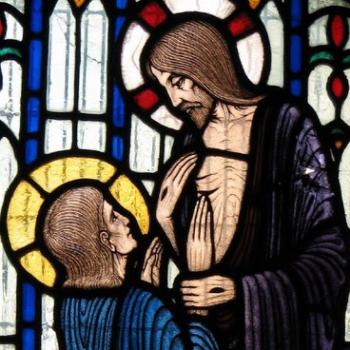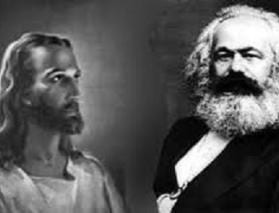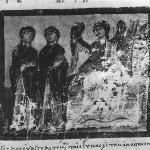In my ethics classes this week, we will be discussing a recent essay by Gary Gutting, who teaches at the University of Notre Dame, that engages with one of the most famous arguments for the existence of God ever offered: Blaise Pascal’s “Wager.” Except that the “Wager” is not an argument for the existence of God at all. Rather, it is Pascal’s analysis of an interesting situation that human beings find themselves in. Since we cannot prove beyond the shadow of a doubt whether God does or does not exist, and since either God or doesn’t exist, which possibility would a smart person bet on?

Pascal was a seventeenth-century French philosopher and mathematician, a full participant in the Scientific Revolution and one of the forerunners of the Enlightenment. He was knocked on his ass one night by what he interpreted as a direct message from the divine, an event that changed his life. It moved him strongly in a religious direction, causing him to put his mathematical theories on the shelf.
Pascal lived in a time of skepticism; the medieval worldview had crumbled, the Scientific Revolution was in full swing, and religious wars were being fought all over Europe. Michel de Montaigne, one of the most eloquent and brilliant doubters and skeptics who ever lived, was the most widely read author of the time. Pascal had no doubts about God’s existence—his mystical experience (what he called his“Night of Fire”) had burned away any uncertainty—but he was smart enough to know that not everyone has such experiences. Lacking direct experiential evidence, and knowing that every philosophical and logical argument for the existence of God has been disputed by other philosophers using logical arguments, what would a betting person do?
Consider the options, says Pascal. Either you believe that God exists or you don’t, and either God exists or God doesn’t. That means there are four possibilities:
- I believe in God, and God does not exist
- I do not believe in God, and God does not exist
- I believe in God, and God exists
- I do not believe in God, and God exists
Options 1 and 2 are essentially a wash. Believer 1 will probably live her life somewhat differently than Non-believer 2, but at the end of their lives they both are dead. End of story. But if it turns out that God does exist, then everything changes. Believer 3 is set up for an eternity of happiness, while Non-believer 4 is subject to eternal damnation. On the assumption that we cannot know for sure whether God exists but we still have to choose whether to believe or not, it makes betting sense to be a believer than to be a non-believer. The believer either lives her life and dies or gets eternal happiness, while the non-believer either lives his life and dies or gets eternal damnation. So be smart and believe. QED.
Many silent assumptions are woven into the argument, assumptions that have driven analysis and critique of Pascal’s Wager ever since. For instance, the argument assumes that there is about a 50-50 chance that God exists. But it could be argued that the preponderance of direct evidence from the world we live in (evil, disease, natural disasters, etc.) counts against God’s existence—the likelihood of God’s nonexistence is far greater than 50 percent.
Others have pointed out that the difference between 1 and 2 is not negligible at all. Believer 1 might spend her life denying herself all sorts of experiences and pleasures in the mistaken belief that a nonexistent God doesn’t like such experiences and pleasures, while Non-believer 2 will enjoy such experiences and pleasures to the fullest. And what if God exists but is of an entirely different nature and character than we think? What if the things we believe will please God actually piss God off?
I find such critiques to be compelling and do not find Pascal’s Wager to be an attractive argument at all, but I already believe in God’s existence, so what do I know? I am far more interested in what Pascal says after the options are laid out to the person who buys the argument but is currently a non-believer. If I don’t believe in God’s existence but am convinced that a smart betting person does believe in God’s existence, how do I make that happen? How does one manufacture belief in something one does not believe in? Pascal’s advice is revealing.
You would like to attain faith and do not know the way; you would like to cure yourself of unbelief and ask the remedy for it. Learn of those who have been bound like you, and who now stake all their possessions. These are people who know the way which you would follow, and who are cured of an ill of which you would be cured. Follow the way by which they began; by acting as if they believed, taking the holy water, having masses said, etc. Even this will naturally make you believe, and deaden your acuteness. What have you to lose?
Pascal is borrowing a technique from Aristotle, who once said that if you want to become courageous, do the things that courageous people do. In this case, do the things believers do and one day you may find you’ve become one.
“What do you have to lose?” Pascal asks. Although there is a certain logic to his question, just as there is a certain logic to the wager argument itself, it’s the wrong sort of question when it comes to matters of faith and belief. I recently had several extended exchanges in the comments section on my blog with persons claiming to be atheists; several of them had a very difficult time understanding how anyone, especially a philosophy professor, could be a person of faith in the absence of sufficient evidence or logical proof.
My response—both to Pascal and to my blog conversation partners—is that although faith and philosophy cooperate with and inform each other, neither is fully answerable to the other. Pascal has opened the door to a type of faith that is not faith at all—it’s simply putting one’s eggs in the most likely basket, then acting as if one actually believed. The evidence that supports faith is often not logical and is never complete—unless, or course, “evidence” encompasses a lot more than what can be reduced to reason and logic. As I often quote from Hamlet, “there are more things in heaven and earth than are dreamed of in your philosophy.”

















